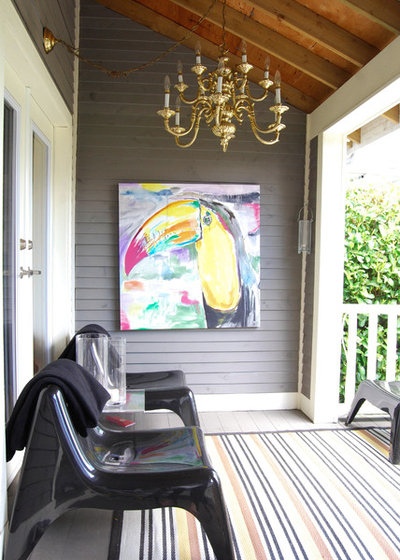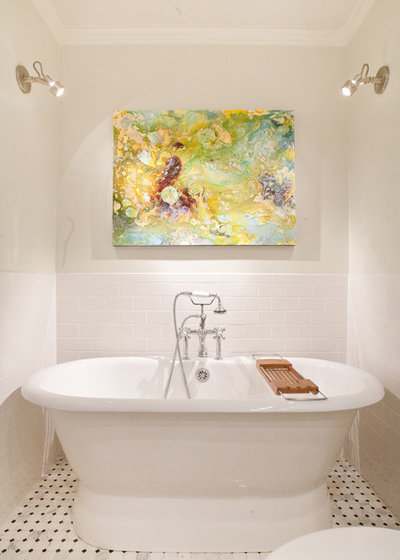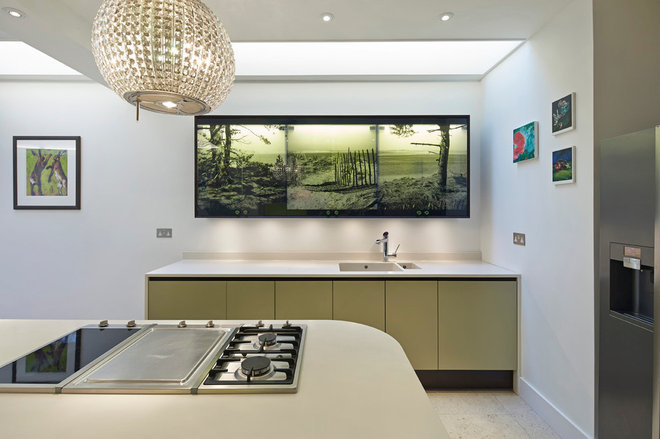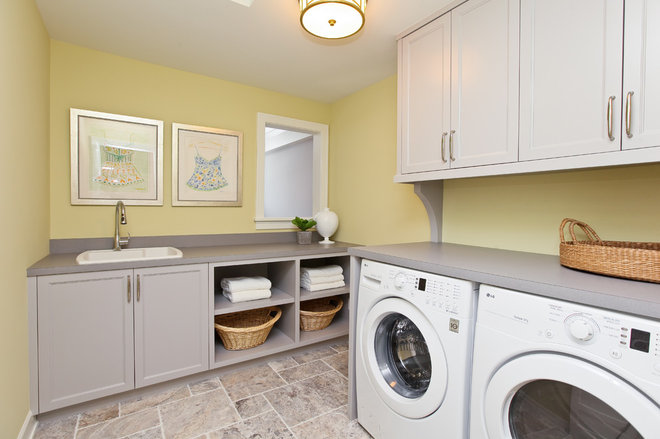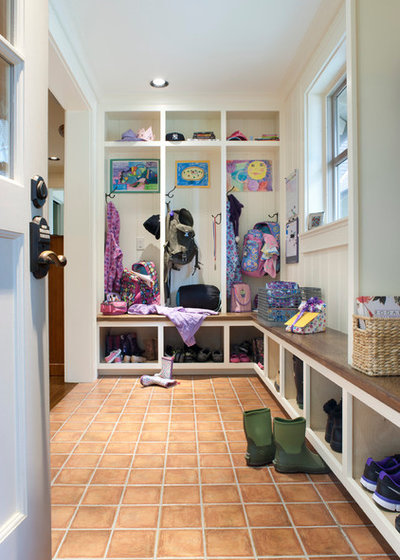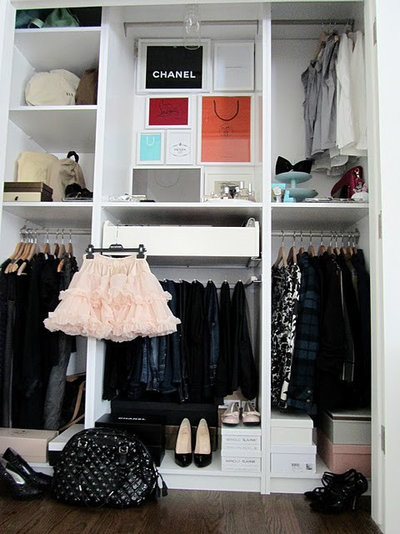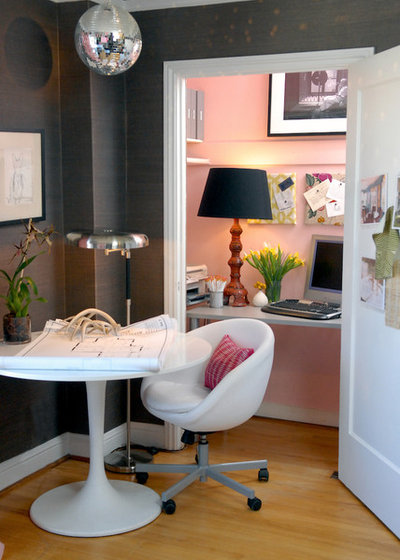Elicit surprise and delight by displaying art in spaces where someone might least expect it.
Art engages us, stirs our soul and creates debate, but it is often the final piece in a room. Although art is usually saved for last, the right piece of art can tie all the other elements in a space together. When used in a surprising place, art can be thrilling. When we least expect it, a colorful depiction from a child's imagination in a mudroom or a thought-provoking landscape over a kitchen bench delights us.
Use one of these creative placement ideas to make your much-loved artwork even more enjoyable.
Use one of these creative placement ideas to make your much-loved artwork even more enjoyable.
1. Patios. Outdoors may not be the most obvious place for a painting, but if it is well protected from the elements, why not? This bright toucan painting really livens up this porch.
Design tip: When you're hanging artwork in an area with an 8-foot high ceiling, the middle of the picture should be approximately 5 feet off the floor.
Design tip: When you're hanging artwork in an area with an 8-foot high ceiling, the middle of the picture should be approximately 5 feet off the floor.
2. Bathrooms. Bathrooms should be places of serenity and luxury. A beautiful piece of art will only enhance that indulgent experience.
Design tip: In wet areas place your artwork under glass to avoid damage from water and steam.
Design tip: In wet areas place your artwork under glass to avoid damage from water and steam.
3. Kitchens. It is ideal to have a window at your kitchen sink. But if you don't have that luxury (or you would prefer the extra cupboard space instead), take photographs of some favorite personal places and have them screen-printed onto glass cabinet doors.
Design tip: Try grouping empty frames, mirrors or family photos. Symmetrical groupings add balance, formality and a sense of calmness.
Design tip: Try grouping empty frames, mirrors or family photos. Symmetrical groupings add balance, formality and a sense of calmness.
4. Laundry rooms. We spend a lot of time folding, ironing and facing the walls in a laundry room, so it makes sense to be able to look at something more interesting than a blank space. Subtle but delightfully framed dresses break up the blank expanse of wall here.
Design tip: When you're grouping pictures together, shoot for about 2 inches of space between larger pictures. If they are small pictures, an inch and a half may be enough. These distances apply for the spacing above, below and on either side of the frames as well.
Design tip: When you're grouping pictures together, shoot for about 2 inches of space between larger pictures. If they are small pictures, an inch and a half may be enough. These distances apply for the spacing above, below and on either side of the frames as well.
5. Storage. When you're trying to organize individual spaces for the smaller members of the family, a special piece of their artwork can be great visual reminder for whose cubby is whose.
Design tip: Jazz up a children's space by framing art from their favorite books. Imagine a series of Dr. Seuss images all framed in a row.
Design tip: Jazz up a children's space by framing art from their favorite books. Imagine a series of Dr. Seuss images all framed in a row.
6. Closets. Dressing rooms by nature should be decadent, so not displaying artwork would be a fashion crime. These framed shopping bags are the perfect reminder that self-indulgence is OK every now and then.
Design tip: To hang groups of pictures together, trace the frames onto craft paper first and cut out the pieces. Position the pieces and lightly tape them onto the wall. You can move them around until you are happy with the layout, without putting a ton of holes in the wall.
Design tip: To hang groups of pictures together, trace the frames onto craft paper first and cut out the pieces. Position the pieces and lightly tape them onto the wall. You can move them around until you are happy with the layout, without putting a ton of holes in the wall.
7. Small spaces. When space is a premium, imagination is everything. Turning this cupboard into a study nook was genius. A piece of art helps keep a space like this tidy in public.
Design tip: If you are hanging a piece of art above a piece of furniture, keep the art's width at 50 to 90 percent of the width of the furniture. The ideal width is 75 percent. Less than 50 percent is too small, and more than 90 percent will look out of proportion.
Design tip: If you are hanging a piece of art above a piece of furniture, keep the art's width at 50 to 90 percent of the width of the furniture. The ideal width is 75 percent. Less than 50 percent is too small, and more than 90 percent will look out of proportion.

